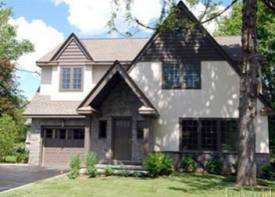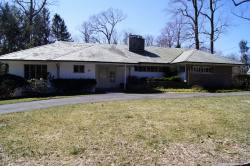Tax Reassessment in Process: What it Will Mean for You!
- Thursday, 05 July 2012 07:04
- Last Updated: Thursday, 05 July 2012 14:03
- Published: Thursday, 05 July 2012 07:04
- Hits: 7063
 What do Scarsdale’s Property Tax Revaluation, Woodstock and NASA’s voyage to the moon all have in common? Give up? They all last occurred in 1969. Yes you read it right; it’s been almost half a century since Scarsdale residents have had their property taxes revalued. Most towns re-assess the value of homes every few years in order to maintain an equitable property tax partition. But Scarsdale has refrained from doing so, and as a result, has created a colossal tax inequity amongst residents. Now after 44 years, the Village believes it’s finally time for a re-assessment.
What do Scarsdale’s Property Tax Revaluation, Woodstock and NASA’s voyage to the moon all have in common? Give up? They all last occurred in 1969. Yes you read it right; it’s been almost half a century since Scarsdale residents have had their property taxes revalued. Most towns re-assess the value of homes every few years in order to maintain an equitable property tax partition. But Scarsdale has refrained from doing so, and as a result, has created a colossal tax inequity amongst residents. Now after 44 years, the Village believes it’s finally time for a re-assessment.
It stands to reason that the market value of homes has fallen out of alignment with  assessed values of 1969. Forty-four years of underreported renovations, market volatility and a real estate market that is inherently illiquid with uneven turnover (only upon new construction, sale of a house or renovation has a re-assessment taken place) have resulted in relative value disparity among comparable homes in the village of Scarsdale. This has essentially created a system of “winners” and “losers” amongst Scarsdale residents. And in order to shift the burden from those paying too much to those paying too little, a re-assessment is necessary.
assessed values of 1969. Forty-four years of underreported renovations, market volatility and a real estate market that is inherently illiquid with uneven turnover (only upon new construction, sale of a house or renovation has a re-assessment taken place) have resulted in relative value disparity among comparable homes in the village of Scarsdale. This has essentially created a system of “winners” and “losers” amongst Scarsdale residents. And in order to shift the burden from those paying too much to those paying too little, a re-assessment is necessary.
Throughout the next six months, tax assessors from Tyler Technologies (the same company that revalued Bronxville’s property taxes) will be knocking on every Scarsdale resident’s door to evaluate on 19 specific criteria, after which they will determine a new assessed value for your home. I’m sure many of you are a little confused as to what actually happens, so I’ll provide a brief rundown of how the process goes. The assessor will try a total of four times to contact you. First, the assessor will attempt to come to your house on two separate occasions. If you are either unavailable or choose not to allow the assessor in to your home on both of those occasions, you will receive up to two letters attempting to schedule a date and time for your re-assessment.  If you choose not to reply to those letters, the assessors will merely measure the outside of your house and make certain assumptions about the inside (such as a finished basement and overall excellent house condition) that add value to your home. That being said, it’s clearly in everyone’s best interest to let the assessor in, as those who don’t will have their house overvalued and thus end up potentially paying higher property taxes. Besides, it defeats the purpose of a revaluation if a meaningful portion of homes declines to allow the assessor in, as the data for the whole village will be skewed.
If you choose not to reply to those letters, the assessors will merely measure the outside of your house and make certain assumptions about the inside (such as a finished basement and overall excellent house condition) that add value to your home. That being said, it’s clearly in everyone’s best interest to let the assessor in, as those who don’t will have their house overvalued and thus end up potentially paying higher property taxes. Besides, it defeats the purpose of a revaluation if a meaningful portion of homes declines to allow the assessor in, as the data for the whole village will be skewed.
It is estimated that approximately one third of households will be assessed at a higher value, one third will remain the same, and one third will be assessed at a lower value. By re-assessing all homes based on current fair market value, the playing field will be more level for Scarsdale residents.
The assessors started their procedure last week, and so far things are running smoothly,  except for one minor blip. Some people were not notified ahead of time that the assessor was visiting because it’s difficult for the assessors to gauge just how many houses they will get through each day. If the assessor finishes the ten houses he was assigned for that day but still has some extra time, he may try to squeeze in a few more houses. Naturally, residents of those extra houses were not expecting an assessment, and were displeased when the assessor showed up without warning. When speaking to Scarsdale Village Trustee David Lee about this issue, he assured me that from here on, the village staff will give notice to all residents ahead of time before an assessor arrives.
except for one minor blip. Some people were not notified ahead of time that the assessor was visiting because it’s difficult for the assessors to gauge just how many houses they will get through each day. If the assessor finishes the ten houses he was assigned for that day but still has some extra time, he may try to squeeze in a few more houses. Naturally, residents of those extra houses were not expecting an assessment, and were displeased when the assessor showed up without warning. When speaking to Scarsdale Village Trustee David Lee about this issue, he assured me that from here on, the village staff will give notice to all residents ahead of time before an assessor arrives.
In about six months the revaluations will be complete and by January 2013 residents will receive a form that breaks down the home’s data (ex. number of bathrooms) and provides a new assessment equal to current fair market value. An important clarification to those whose assessments have increased: The combined village and school budget is approximately 200 million dollars per year, meaning the village must raise this much money each year through property taxes. Because the total amount needed to be collected is the same, a higher assessment for one’s homes will not necessarily yield higher taxes. What determines any change in your taxes is how much the value of your home increases or decreases relative to other homes. So if all the homes in Scarsdale were re-assessed and increased an identical percentile amount, no resident’s taxes would increase. However, residents won’t know how their taxes have been effect until January of 2014, when the new tax roll is released.
So why after 44 years, has Scarsdale decided that it is time for a re-assessment? What are the incentives for having a village wide revaluation of homes? Village Board Member and Scarsdale Resident David Lee believes the issue boils down to fairness. Having some residents overpay in property taxes to subsidize those underpaying is purely unfair. Lee believes that “If people think that their neighbors aren’t contributing what they should be, it undermines confidence in the village.” Further speaking with Lee on the subject, he stated that another reason for re-assessment is to combat the sheer amount of Certiorari Procedures brought against the village. Throughout the past 44 years, many companies realized the potential profitability of Scarsdale due to its considerable number of over-assessed homes. These firms contact residents and essentially say, “I am a professional challenger of assessed values on houses and I can help you to fight it and bring it down.” Those who believe their house has been over-assessed will hire the firm to bring a Certiorari proceeding to the Scarsdale Village Court in hopes of having their assessment decreased. If the firm wins the case, the resident’s real estate tax decreases, and he/she would pay a portion of the decrease, perhaps half, to the firm over the next few years. These court proceedings are expensive (Mamaroneck spent over $600,000 fighting Certiorari Procedures) and have become an unnecessary drain on the village’s limited budget. Hopes of mitigating these costly disputes has prompted the village to re-assess homes.
Although the revaluation will be expensive (the total nearing one million dollars), this procedure is necessary and will ultimately save money when considering its mitigating effect on certiorari procedures. The cost will be repaid over a five-year period. Once the initial revaluation is done, it can be updated inexpensively as the systems, processes and baseline data will be in place already. In other words, the village won’t have to wait another 44 years for a revaluation and Scarsdale’s property tax distribution will remain relatively equitable from here on out.
David Candell graduated from Scarsdale High School in 2011 and recently completed his freshman year at Boston University.







